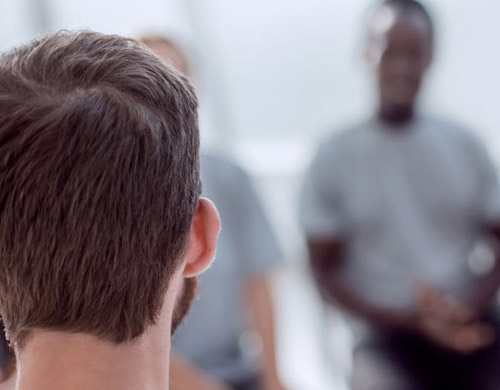People undergoing treatment for from alcohol use disorder are prone to alcohol cravings. Although most treatment programs prescribe specific medication to curb such cravings, their effects vary from person to person. This doesn’t mean you need to increase your dosage, though. Rather, it’s important to understand why you may get cravings, and practice at-home techniques to reduce them.

Why You Get Alcohol Cravings
Cravings don’t affect everyone the same way, and there could be different reasons why you experience cravings versus other people. Here are some of the main reasons why people experience alcohol cravings.
You Have a Habit
One of the main reasons is that you have a habit of drinking alcohol in certain situations. For instance, you may want to have a drink after getting into an argument with your partner to help you feel calmer. Or, alcohol could be your way to unwind and relax after a tough day at work. And if you’re at a party, having a drink or two could help you open up to people.
Over time, the pleasant effects of alcohol act as a reward of consuming the substance, and it reinforces you the desire to have alcohol in some situations. Eventually, you may feel a need for that rewarding feeling whenever you encounter a new experience.
Shifts in Brain Chemistry
Prolonged consumption of alcohol can affect the brain’s level of neurotransmitters, which act as chemical messengers. Over time, these cause you to develop a tolerance, so you have to drink more to feel the same effects. The change in your brain’s neurotransmitter levels can make you more sensitive to how alcohol affects your body, while raising the likelihood of withdrawal symptoms.
Triggers
In some cases, you may crave alcohol as a response to a trigger. This could be a memory of something you associate with alcohol, or due to stress. Most people who experience alcohol cravings are exposed to a combination of external and internal triggers, such as thoughts and memories.
For instance, you may be surrounded by people who you would frequently drink with (external trigger) and you remember the pleasant emotions associated with joking and laughing when you’re around them (internal trigger).
Some internal triggers include anger, anxiety, irritation, and sadness. Meanwhile, external triggers include an argument with someone, coming home after work, going to a party, or visiting a restaurant where you would often drink.
Taking Vitamin Supplements to Reduce Cravings

Alcoholics often experience vitamin deficiencies, as excessive alcohol consumption negatively affects the body’s ability to absorb important nutrients. Many doctors prescribe B-vitamin supplements as part of the detoxification process to meet the body’s nutritional requirements. One study shows that vitamin B complex can be highly effective in the treatment process to reduce alcoholic neuropathy.
Foods That Reduce Alcohol Cravings
Similarly, certain foods can reduce alcohol cravings by improving digestion, ensuring healthy blood sugar levels, and sustaining proper brain chemistry. Some examples of such foods include:
Raw Spinach
Dark leafy greens like raw spinach and parsley give the body essential fiber, vitamins, and minerals. This combination allows it to sustain a healthy metabolism, and it contains the amino acid L-glutamine, which reduces cravings and anxiety. It’s important to eat them raw as heat from the cooking process breaks down the L-glutamine.
Walnuts
Nuts are a great source of healthy fats and give your body a quick dose of energy. Walnuts, chia seeds, and flaxseeds are loaded with omega-3 fatty acids, which protects brain cells that have been exposed to large concentrations of alcohol.
Whole-Grain Carbohydrates
When your body consumes alcohol, it converts it into sugar. Once you stop drinking, your body still craves the sugar it used to get from alcohol. That’s where complex carbohydrates like whole-grain bread and brown rice come in. Your body metabolizes them slowly, keeping your alcohol (sugar) cravings at bay.
Yogurt
It’s one of the best dairy products you can take to curb alcohol cravings as it’s rich in protein, vitamin D, and probiotics. Probiotics sustain gut health and the calcium in yogurt is good for your liver, too. Additionally, foods like milk, cheese, and legumes are healthy sources of vitamin D.
Salmon
Fish like salmon, mackerel, and tuna are rich in vitamin D and lean protein, which can help in stabilizing your mood and alleviating feelings of depression. As a coldwater fish, salmon also contains healthy polyunsaturated fats, which are a great source of omega-3 fatty acids. This impressive combination of nutrients improves cognitive function and mood, all of which are necessary to control cravings.
Herbs to Lower Alcohol Cravings
While it’s true that some foods can balance the body’s nutritional needs to reduce cravings, certain herbs can have a therapeutic effect as well.
Passion Flower
Some studies show that passion flower can assist in reducing anxiety and improving sleep. It does so by increasing the amount of GABA in your brain, which reduces activity to help you sleep better and relax.
Milk Thistle
This herb has therapeutic properties that are beneficial for the liver. Hence, it’s often considered as an effective way to manage liver cirrhosis and alcoholic hepatitis. Various studies show that it can improve the liver’s function and when taken by recovering alcoholics, it increases survival.
Kava
This herb has a euphoric and relaxing effect that’s similar to that of an anxiolytic. In this way, it has a similar effect on the brain as alcohol, which explains why many people use it to reduce anxiety and stress.
Kudzu
Research shows that this herb is effective for reducing cravings in alcoholics as it inhibits the breakdown of alcohol. It also produces effects that are similar to those of Disulfiram.
Dandelion
Studies show that dandelion can improve the liver’s function by eliminating toxins and sustaining the body’s electrolyte balance. One study shows that dandelion water can prevent alcohol-induced steatosis, which is when fatty deposits accumulate on the liver. It’s the liver’s most common response to excessive alcohol consumption.
While these are some effective ways to reduce your cravings without increasing your medication, it’s important that you continue treatment under the supervision of a healthcare professional. In addition, make sure that you see a therapist to develop other strategies to handle cravings and discuss mental health issues that may prompt you to drink.
Do You Need Help?
We can help you get better. Together, we can work on your recovery process, build up your confidence and you can regain control over your life!
Contact us now to ask about our addiction and alcohol abuse treatment programs including support groups now!
Why Choose United Recovery CA for Alcohol Addiction and Abuse Treatment?
We at United Recovery are completely dedicated to delivering the optimal addiction help for you and your loved ones. Our medical personnel is strict, but understanding - they will provide you with an in-depth assessment and treatment. Our therapists are highly experienced and will guide you, through behavioural and psychological therapies, towards a new lifestyle. With our counsellors accompanying you through your after-rehab months, throughout the aftercare period, you will be able to focus on re-establishing your position in the world, reactivating your Self and rebuilding your character.





